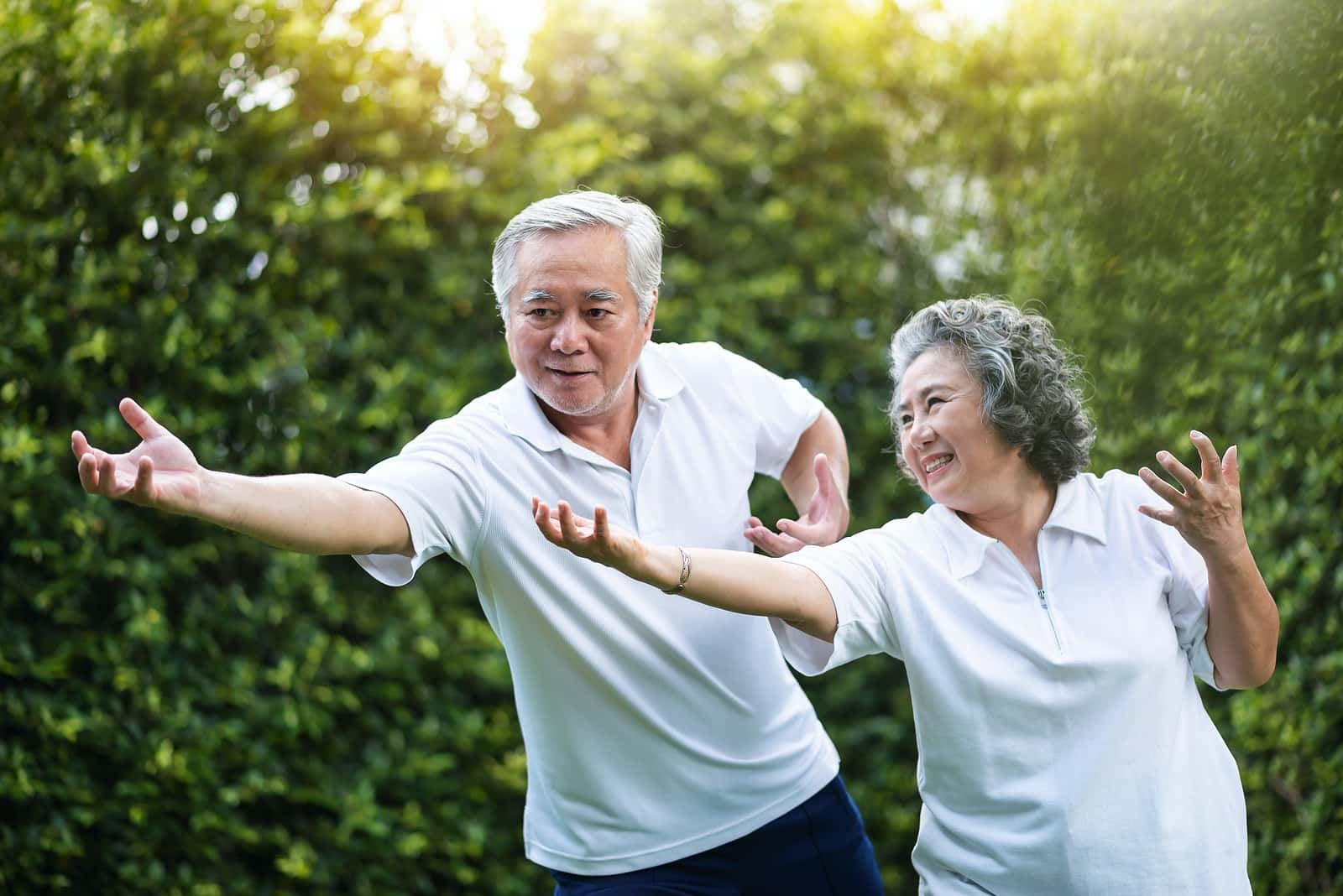
Patients with the movement disorder called Parkinson’s disease often develop resistance to treatment after several years. Unfortunately, the usual consequence is worsening symptoms that make daily life more challenging. However, certain exercise regimens seem to slow the progression of the disease.
Tai Chi Helps People with Parkinson’s Disease Symptoms:
Although the drugs used to treat this movement disorder have not changed much for decades, several studies suggest that exercise can be helpful. A new study suggests that people who practice tai chi, a Chinese martial art characterized by slow movements and balance, can slow the progression of this neurological condition (Journal of Neurology, Neurosurgery, & Psychiatry, Oct. 24, 2023). In this study, 143 Chinese people with Parkinson’s disease were trained in tai chi. (Doubtless, some of them had been practicing it previously, as it is a popular activity in China.) They were matched to 187 patients who did not have tai chi training. Over the next three and a half years, those doing tai chi needed to increase their medication doses less. They also had fewer and less severe motor and non-motor symptoms.
Previous Research Showcased Short-Term Benefits of Tai Chi:
This is not the first study to flag tai chi as beneficial for such patients. A previous study showed that practicing tai chi helped patients with mild to moderate disease improve their stability and reduce their risk of falls (NEJM, Feb. 9, 2012). The scientists recruited nearly 200 people with Parkinson’s disease and assigned them randomly to hour-long exercise sessions of stretching, resistance training or tai chi twice a week. The training sessions lasted for 6 months, and resulted in better directional control, stride length and reach, even 3 months later. There were no serious adverse events.
High-Intensity Exercise for Early Parkinson’s Disease:
Tai chi is not the only exercise program that may be helpful. A study in JAMA Neurology demonstrated that high-intensity exercise can slow the progression of the condition (JAMA Neurology, Feb. 2018). The study included 128 volunteers in the early stages of Parkinson’s disease. They were not yet taking medication.
Before the study began, the scientists rated participants’ symptoms on a scale of 0 to 108. All had a score of around 20 at the outset. Then volunteers were randomly assigned to exercise three times a week at high intensity, moderate intensity or not at all.
The Results of the Intervention:
The non-exercising group of patients with Parkinson’s disease got worse by 3 points on the scale after six months. People assigned to exercise at moderate intensity had a 1.5 point worsening, on average. However, those exercising at high intensity, 80 to 85 percent of maximum heart rate, did not change at all. In sum, this is a clear demonstration that exercise is good medicine for all of us, especially those with movement disorders.
Learn More:
We are encouraged to read that people with Parkinson’s disease thrive if they exercise vigorously. This is not the first study to show these benefits. Earlier in 2017, we interviewed Dr. Jay Alberts and Kathy Helmuth about their work using intense exercise to slow or even reverse symptoms of this condition. You’ll find that interview as Show 1090: How Intense Exercise Benefits Parkinson Patients. You may also want to listen to Show 1259: Preventing and Treating Parkinson’s Disease.
Citations
- Li G et al, "Effect of long-term Tai Chi training on Parkinson's disease: a 3.5-year follow-up cohort study." Journal of Neurology, Neurosurgery, & Psychiatry, Oct. 24, 2023. DOI: 10.1136/jnnp-2022-330967
- Li F et al, "Tai chi and postural stability in patients with Parkinson's disease." New England Journal of Medicine, Feb. 9, 2012. DOI: 10.1056/NEJMoa1107911
- Schenkman M et al, "Effect of High-Intensity Treadmill Exercise on Motor Symptoms in Patients With De Novo Parkinson Disease: A Phase 2 Randomized Clinical Trial." JAMA Neurology, Feb. 2018. doi:10.1001/jamaneurol.2017.3517

